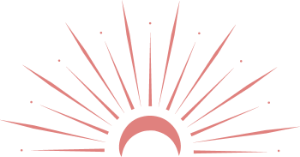Raise your hand if your morning routine looks like this:
- Your alarm goes off (or a little one crawls into bed with you).
- You open your eyes, silently beg the ceiling for strength to tackle the day, then reach for your cell phone and open your Mail app. Maybe you’re fastidious about cleaning out all the junk that accumulates overnight; maybe you’re like me, and every new ping in your work inbox beckons like a tiny present waiting to be unwrapped.
- You open one or two (or six) letters and make a mental note of the most urgent issues. You start to reply to one of them, until you notice the time and the fact that you’re going to be late if you don’t get moving like now.
- So you set down your phone and head for the bathroom with the whir of those lingering tasks running like open programs on the hard drive of your brain, quietly draining your attention and focus even as you move through routine tasks: shower, smoothie, cajoling kids out of pajamas and/or yourself into work slacks (because ugh, when did it get cold enough to wear pants?).
And so on, with those un-answered emails bopping around in your head, until you’re able to squeeze them in somewhere (never while driving [right?] but maybe just as soon as you sit down at your computer for the day…
Raise your hand if you can guess what morning routine all hyper-productive people share.
Ready? Here it is:
They do not check their email.
Seriously. That’s it.
They do not check it in bed. Nor while brushing their teeth. Not in the house. Not with a mouse. Not here nor there nor anywhere.
Instead, they spend at least one hour accomplishing (more important) stuff.
Like writing books and cashing checks and swimming with dolphins draped in pearls, presumably. (I don’t know how the other half lives.)
What’s going on here?
Why does the intrusion or absence of email make or break freelance productivity?
Allow David Rock, author of the obsession-worthy book Your Brain at Work, to answer that one.
“More people than ever are being paid to think, instead of just doing routine tasks. Yet making complex decisions and solving new problems is difficult for any stretch of time because of some real biological limits on your brain.”
Thanks, David.
Basically, if you have a job that requires you to think (i.e. a coaching, consulting, or creative, service-based business), your brain is biologically unprepared to handle all the work you do in a given day.
Your monkey wiring has real physical limitations. Every complex decision you make drains significant energy (in the form of glucose), and after a surprisingly short period of time, your brainpower is maxed out. You run out of juice. You’re done.
And guess which activity is one of the most complex, energetically taxing activities associated with the modern workplace?
Ding ding.
Email.
Rock’s key point is this: “Maintaining a good focus on a thought occurs through not so much how you focus, but rather how you inhibit the wrong things from coming into focus.”
If you want to focus, you’ve got to minimize distractions—and their energy-sucking brain drain.
Because let’s face it. We can’t eliminate distractions completely. We’d have to sell all our stuff, move to Antarctica, and live in a cave somewhere. And then how would we build our soul-fueled businesses, connect with and serve hundreds and thousands of people, and change the world?
We wouldn’t. That’s the whole point.
So if you’re ready to FINALLY tackle your blog calendar, new coaching program, or personal memoir, here’s my TOTALLY ACHIEVABLE 3-step process to distraction-proof your brain.
STEP ONE
Make your cell phone inaccessible.
Earth-shattering, I know. So why haven’t you done it yet?
If you’re a morning email checker, turn your phone off before you go to sleep and set an actual alarm clock to wake you up. Better yet, leave your phone downstairs and far, far away from your bedside.
If you’re at work, set it to silent, darken the screen, and put it in a drawer. Or turn it off completely.
Here’s why it matters according to SCIENCE:
- Every time you resist temptation, you drain your brain of vital energy resources. These are the same resources you need to accomplish complex tasks, like creating project proposals or writing (sigh).
- An experiment by Roy Baumeister at Florida University demonstrated that when test subjects were asked to resist eating chocolate while alone in a room with it, they later gave up more quickly on complex tasks than those who didn’t have to resist the urge at all.
- As we’ve established, the less willpower you need to avoid the temptation, the less energy you’ll drain. So you’ll have MORE energy to do the work you really need to do.
So yes, turn off your phone. Even if AUGH! That idea freaks you out.
(If you’re worried about being unavailable for your kids, block off short but specific periods of time when you’ll go dark. Even 15 minutes can be huge when you’re trying to focus and finish an important task.)
STEP TWO
Write down a list of things that commonly interrupt and distract you.
Then add the words “energy suck” next to each one.
Emails, texts, calls, Periscope notifications (!!!!)—all these beeps, buzzes, and plings on your cell phone no doubt distract the $&(@ out of you.
Facebook is another killer—one recent study showed that people spend something like 90% of time on their phone on Facebook.
So what distracts you?
Maybe coworkers drop by your office to say hello, or the front desk routinely sends callers straight through to you.
Whatever it is, write it down. Name it.
Got your list?
Cool.
Now I want you to add the words “energy suck” next to it. So your list might look like this:
- Email – energy suck
- Coworker drop-ins – energy suck
- Facebook Messenger – energy suck
Here’s why writing things down and naming them is so important:
- Once you’re actually doing a task (like scanning through your inbox or actually reading or writing an email), it’s extremely expensive, energetically speaking, to stop or inhibit your current activity. (Resisting the urge is hard. But it’s WAY harder to stop once you’ve started.)
- As Rock says, “To avoid distractions, it’s helpful to get into the habit of vetoing behaviors early, quickly, and often, well before they take over.” When you make this list and consciously identify a task as a distraction, it no longer bubbles up from the surface of your subconscious like some innocent impulse to have a little fun.
Once you name the things that distract and drain you, you identify them as such—and give your prefrontal cortex the ability to say NO upfront, instead of being bamboozled and extra-exhausted when you have to stop mid-emailing.
Want some scientific proof that this works?
Here’s my summary of an experiment Rock describes in his book.
- Two groups of people were shown a series of flashing lights and asked to copy what they saw onto a keyboard. Group 1 had a random series of flashes. Group 2 had a complex but repeating pattern.
- All Group 2 participants were able to write down the answers 10% faster than those in Group 1. Even though many of them couldn’t identify a pattern consciously, their subconscious brains picked up on it and primed them for the response.
- But a few Group 2 participants wrote down answers 30-50% faster than folks in Group 1. These people could consciously identify the pattern. They could articulate explicitly what their brains knew implicitly.
In short, a subject’s ability to consciously convey hidden thought patterns? Meant they were in control.
Which is exactly what you will be…once you make a list of subconscious distractions and name them as such.
You will transform implicit ideas into explicit and take control of the steering wheel.
Yay.
STEP THREE
Take action NOW to minimize the potential of each one of these energy sucks.
Remember, your brain is a battery with very limited juice. Do you want every item on this list to drain your power before you can use it to change the world?
Didn’t think so.
So for each one of these tasks, figure out how you can consciously minimize the likelihood that they will intrude on you. Some ideas:
- Shut your door and ignore when your coworkers knock on it. (Worried about seeming like an anti-social creep? Just dedicate a few hours a day to the practice.)
- Set your office phone to silent. Close every open program on your computer. Uninstall Facebook Messenger (yes, that’s an option) or just turn off notifications.
- If you want to get really down and dirty, like I did this weekend, you can actually unsubscribe to notifications from friends or Facebook Groups who routinely junk up your notifications.
- Apply an app or extension in Chrome to minimize the time you spend on certain (brain-draining) websites.
Set yourself up for success. Remember, you’re doing it so you can use your finest brain reserves on the projects that matter most.
Which ultimately helps all of us. 🙂
Want more brain hacks to improve your work life?
Then check out Your Brain at Work by David Rock. I’m not even finished reading it yet, and I love it so much I can’t stop talking about it.
What are YOUR favorite techniques for lasering in while you’re at work? Tell me about it in the comments!


